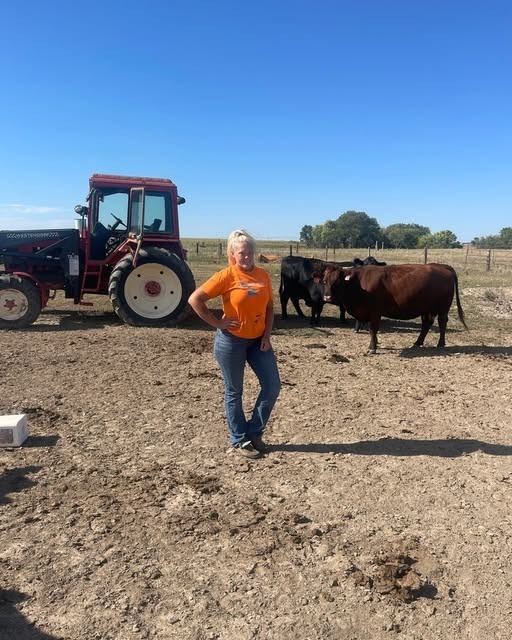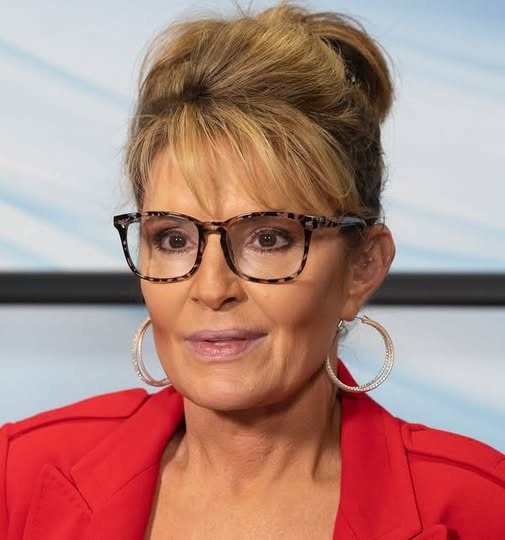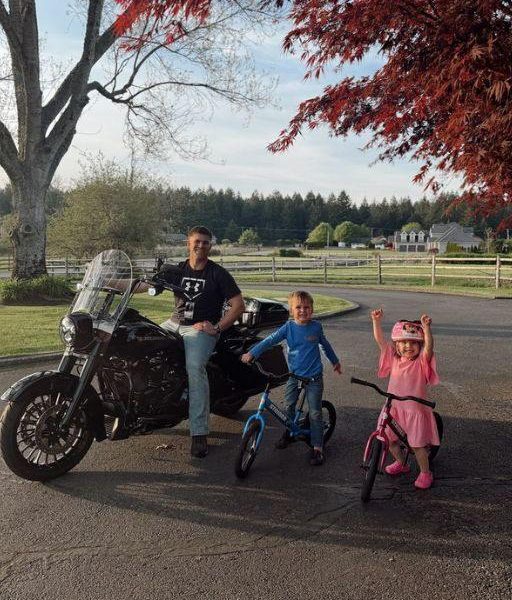The feed-store clerk’s smirk could’ve curdled milk. I stood at the counter in my usual armor—manure-spattered boots, jeans faded to the color of drought, braid tucked through a trucker cap that’s seen more sun than shade—asking for mineral blocks and fencing wire. He chuckled like I’d ordered glitter nail polish. “Gift shop’s up front, sweetheart. You sure you don’t need directions?” I met his eyes, told him I’d been buying the same supplies here every Tuesday for ten years, and watched the laugh die on his lips. He followed up with the classic: “Your husband gonna load this for you?” I paid cash, hoisted two fifty-pound blocks onto each shoulder, and let the automatic door answer for me. Same routine, different Tuesday—except the universe was about to dial the condescension up to a felony level.
I run a 240-acre spread on the edge of the high plains. My ex-husband discovered he preferred city bars to calving pens five years ago and left with nothing but a duffel and a half-hearted “good luck.” The cows didn’t notice. I still pull calves at 2 a.m., weld busted water lines before coffee, and keep a .22 in the glove box for rattlesnakes that think the feed room is their Airbnb. Neighbors like Roy across the creek pat my shoulder and call me “sweetheart” while I’m patching the fence I taught myself to string. They mean well; the bruise still shows. So when I found a note nailed to my barn door—plain paper, block printing: “I know what you did with the west pasture”—my first reaction wasn’t fear; it was fury. That pasture is my résumé, thirty acres I reclaimed from thistle and erosion after the divorce. Whoever wrote the note had stalked my pride and typo’d my life.
I stuffed the paper in my pocket, finished chores, then drove to Roy’s anyway—part interrogation, part habit. He denied everything while leaning on a post he probably claims is his. But he did mention rumors that a development company had been sniffing around ranches, dangling checks like catnip. Back home I found fresh footprints by the pond—smaller than Roy’s boot, deeper than mine. Pepper, my Australian shepherd, growled at the earth as if it had insulted her mother. Someone had paced the fence line, photographing my grass like they already owned it.
The next dawn I added padlocks and motion lights, then headed to town for breakfast and intel. My friend Lucia, who milks 200 head and curses in three languages, slid into the diner booth and said the magic words: land speculators. Turns out a firm out of Denver hires local “consultants” to pressure owners into selling cheap—first with compliments, then with vague threats. She’d gotten the charm offensive; I got the gothic letter. Same playbook, different fonts. Lucia offered to camp in my pasture with a deer rifle and a bottle of Malbec. I told her I’d take the support but not the felony.
Instead, I phoned the sheriff, started a paper trail, and installed trail cams disguised as birdhouses. Within days I had footage: hooded figure, out-of-state plates, camera aimed at my water rights. Roy—reformed Roy—texted me the license number he’d copied when the truck idled on his side of the creek. Deputy ran it: Ms. Lillian Black, property scout, paid per signature she squeezes out of stubborn ranchers. The sheriff paid her a visit; she paid lip service to staying away. Word spread through cattle-coffee circles; other owners admitted they’d gotten “friendly offers” too. By the time our county-commission meeting rolled around, half the valley stood in the room, hats in hand, ready to vote down any sweetheart rezone. Ms. Black’s employer suddenly found greener pastures—literally—three counties east.
When the dust settled, I walked back into the feed store for mineral blocks. Same clerk, same smirk warming up. But the manager—who’d read the local paper—stepped in, rang me up, and carried one sack to the truck without asking. The clerk watched, cheeks the color of fresh branding iron. I tipped my hat, drove home, and unloaded alone, because muscle memory is stronger than gossip.
Strength, I’ve learned, isn’t the absence of fear; it’s the refusal to let fear write the deed. I still braid my hair, still blush at compliments, still cry when a calf doesn’t make it. But every sunrise over that west pasture proves labels peel off easier than paint. Call me Cowgirl Barbie if you must—just remember who owns the ranch, the cattle, the grass, and the gate you walked through.


